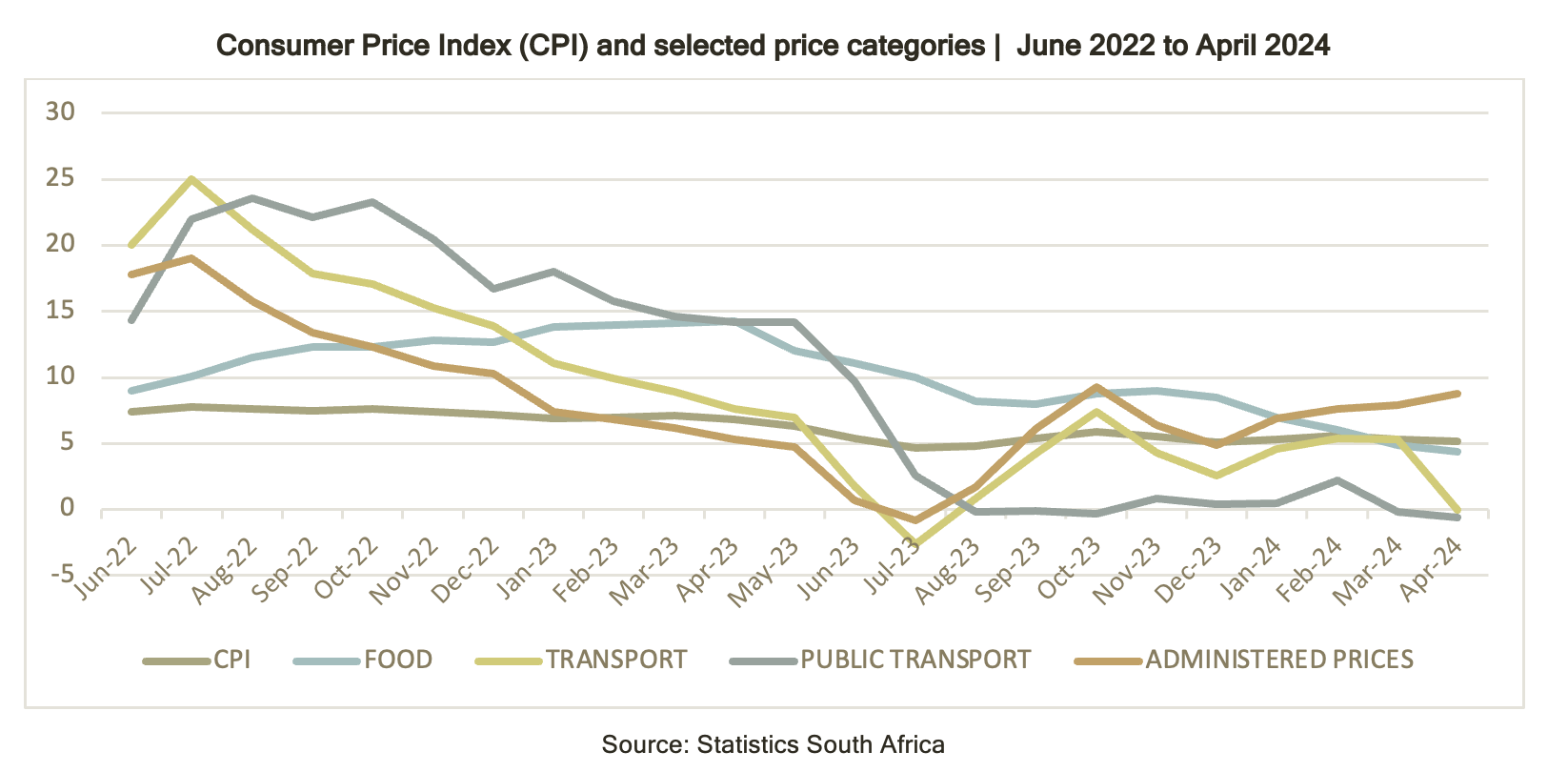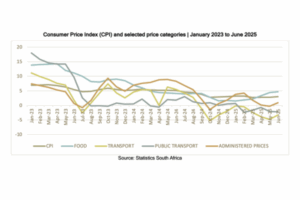Negotiators build their case for wages by comparing the current pay to various benchmarks, including inflation. The latest inflation number tells you what has happened to prices over the last 12 months.
In April 2024, headline inflation was 5.2% from 5.3% in March. The main reason for this slowdown was a drop in the yearly price increase for food and non-alcoholic drinks, which helped offset higher fuel prices. While this is a marginal improvement, it does provide some context for our ongoing negotiations and expectations for wage adjustments.
The South African Reserve Bank predicted that headline inflation would only reach 4.5% by the end of 2025. This means inflation might remain high for a while, and we need to factor this into our wage negotiations to protect workers’ purchasing power.
The slight decrease in inflation, the SARB’s current interest rate stance, and the projected timeline for reducing inflation all provide context for wage negotiations.
The negotiator's checklist for dealing with inflation in wage increases
Current wage increase proposal
- Question: What is the wage increase percentage that is on the table?
- Action: Review the proposed wage increase and note the percentage.
Latest inflation rate
- Question: What is the latest rate of inflation?
- Action: Check the most recent inflation data (e.g., 5.2% in April 2024) on the Statistics South Africa or the LRS Inflation Monitor, see the April issue.
Inflation trend analysis
- Question: What is the trend in inflation over the last six months or more?
- Action: Analyze inflation data over the past six months to identify trends (e.g., is it rising, falling, or stable?)
Future inflation predictions
- Question: What does it tell us about the likely inflation rate over the next 12 months?
- Action: Check out forecasts by SARB, the treasury, Statistics South Africa, banks and financial institutions, Bretton Woods Institutions, economic think tanks, etc.
External factors impacting inflation
- Question: Are there any other reasons inflation might increase or decrease significantly in the coming months?
- Action: Consider factors like changes in fuel prices, food prices, economic policies, or global economic conditions.
Comparing wage increase to inflation
- Question: Is the wage increase greater than inflation?
- Action: Compare the proposed wage increase percentage to the latest inflation rate.
Real wage increase
- Question: How much of the increase is left after inflation?
- Action: Use the LRS Wage Calculator to calculate the real wage increase.
Desired increase in purchasing power
- Question: How much should we aim to increase the purchasing power of wages?
- Action: Consult with workers and ensure the wage increase aligns with this goal.








